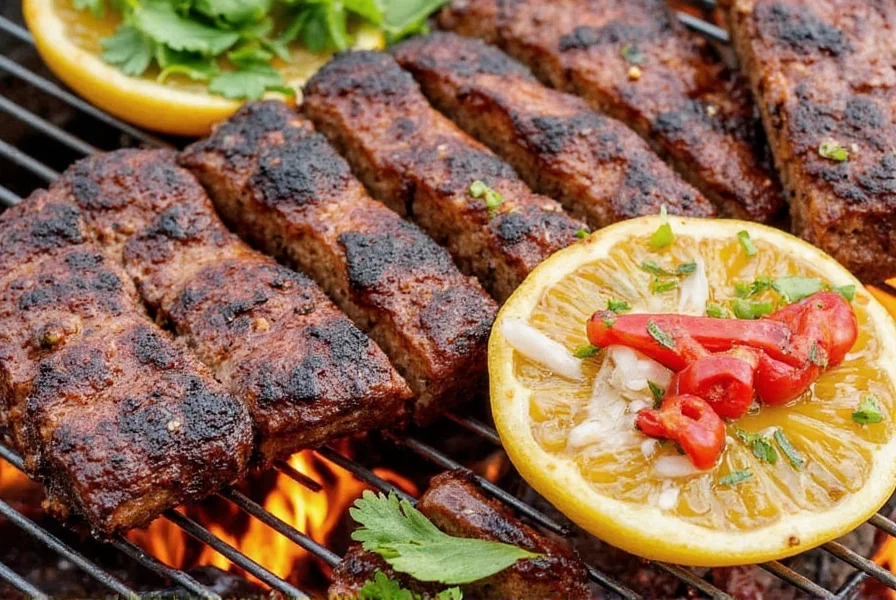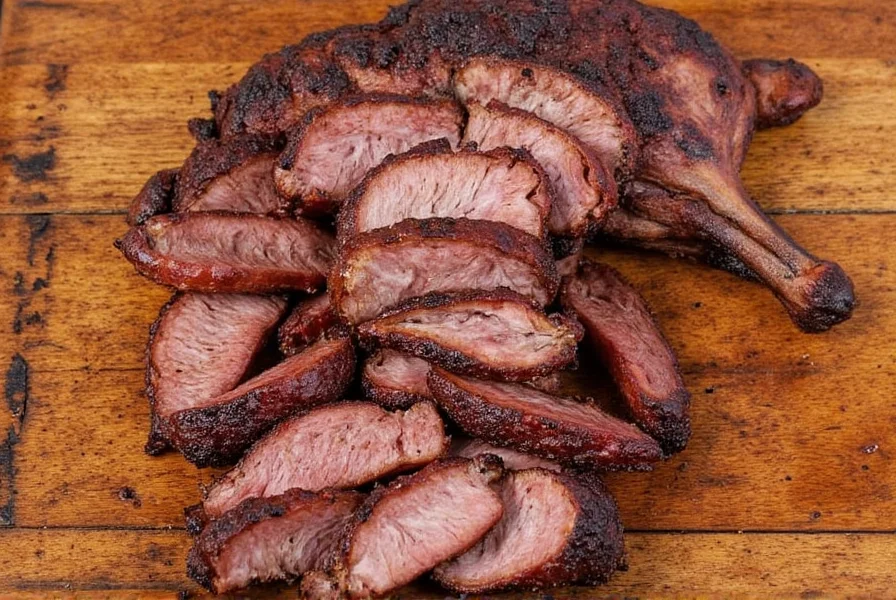What is BBQ Seasoning?
BBQ seasoning is a versatile spice blend that enhances the flavor of grilled meats, vegetables, and other dishes. Whether you're grilling for a summer cookout or adding depth to weeknight meals, understanding the basics of BBQ seasoning helps you make the most of this essential kitchen staple. This guide covers the key components, practical uses, and how to choose quality products for your cooking needs.

Core Ingredients and Flavor Profiles
Authentic BBQ seasoning typically combines smoked paprika, garlic powder, onion powder, cayenne pepper, and brown sugar. These ingredients create a balanced profile of smokiness, sweetness, and mild heat that complements a wide variety of foods. According to the USDA Food Safety and Inspection Service, proper seasoning application enhances food safety by creating a flavorful crust that seals in juices during cooking.
| Ingredient | Flavor Profile |
|---|---|
| Smoked Paprika | Earthy, smoky |
| Garlic Powder | Pungent, savory |
| Onion Powder | Sweet, aromatic |
| Cayenne Pepper | Spicy, warming |
| Brown Sugar | Sweet, caramel-like |

Practical Tips for Using BBQ Seasoning
Maximize your seasoning's potential with these expert-approved techniques from professional chefs and culinary institutions:
- Marinate meats before grilling: Apply a generous amount of BBQ seasoning to chicken, pork, or beef 30 minutes before cooking for deeper flavor penetration.
- Season roasted vegetables: Sprinkle on bell peppers, zucchini, or potatoes before roasting for enhanced caramelization without extra oil.
- Enhance sauces and dips: Mix a teaspoon into ketchup, mustard, or aioli for an instant flavor boost.
- Use it as a dry rub: For a crispy exterior on grilled or baked dishes, apply the seasoning evenly before cooking.
- Experiment with different dishes: Try adding it to soups, stews, or even popcorn for a unique twist.

Buying Guide: How to Choose Quality BBQ Seasoning
When selecting BBQ seasoning, look for products that meet these criteria based on industry standards from the American Culinary Federation:
Key Features to Look For
- Quality ingredients: Choose blends with natural spices and no artificial additives or preservatives.
- Consistency: Look for a fine, uniform texture that blends well into food without clumping.
- Flavor balance: The right mix of sweetness, heat, and smokiness should be evident in the ingredient list.
- Brand reputation: Select brands with transparent sourcing and positive reviews from culinary professionals.
Advantages of High-Quality BBQ Seasoning
- Versatility: Works well with a variety of proteins and vegetables.
- Convenience: Ready-to-use seasoning that saves time in the kitchen.
- Flavor depth: Adds complexity and richness to any dish.
Use Cases and Target Audience
- Barbecue enthusiasts: Perfect for grilling and smoking meats.
- Cooking enthusiasts: Ideal for experimenting with new flavors and techniques.
- Home cooks: Easy to use and adds instant flavor to everyday meals.
Suitable Occasions
- Weekend barbecues: Great for family gatherings and outdoor events.
- Weeknight dinners: Quick and easy way to elevate simple meals.
- Special occasions: Use it to impress guests at dinner parties or holiday meals.

Frequently Asked Questions (FAQ)
- What is BBQ seasoning made of? Authentic BBQ seasoning combines smoked paprika, garlic powder, onion powder, cayenne pepper, and brown sugar for a balanced smoky-sweet-spicy profile.
- How spicy is BBQ seasoning? Most quality blends have mild heat from cayenne pepper balanced by brown sugar's sweetness. This makes it approachable for everyday use without overwhelming spiciness.
- Can I use BBQ seasoning on vegetarian dishes? Absolutely! It works wonderfully on roasted vegetables, tofu, portobello mushrooms, and even plant-based burgers for that authentic barbecue flavor.
- How long does BBQ seasoning last? Store in a cool, dark place for up to 6 months. For maximum flavor retention, keep it in an airtight container away from humidity and sunlight.
- Is BBQ seasoning gluten-free? Most commercial blends are gluten-free, but always check the label for potential additives or cross-contamination warnings if you have sensitivities.
- What's the difference between BBQ seasoning and regular spice blends? Authentic BBQ seasoning features a higher proportion of smoked paprika for deeper smokiness, with balanced sweetness and garlic-forward profile that sets it apart from generic spice mixes.
Conclusion
High-quality BBQ seasoning is more than just a spice blend—it's a culinary tool that elevates everyday cooking. With its perfect balance of smokiness, sweetness, and spice, it's a must-have in any kitchen. Remember that proper storage and application techniques maximize flavor potential. Next time you fire up the grill or reach for a spice jar, consider how quality seasoning can transform your dishes from ordinary to extraordinary.












 浙公网安备
33010002000092号
浙公网安备
33010002000092号 浙B2-20120091-4
浙B2-20120091-4